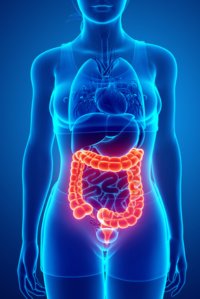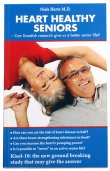Selenium supplements protect against colon cancer
- and routine screening is not enough
 Cancer in the colon and rectum is rather common. One in 20 Danes gets colon cancer at some point in life. Since 2014, the Danish Health Authority has recommended a screening program, offering middle-aged and older people a screening for colon cancer every other year. If the disease is discovered in its early stage, the chances of successful treatment increase. Supplementation with organic selenium yeast has been shown to lower the risk of colorectal cancer in the first place, and selenium even has a protective effect against other cancer forms, so the nutrient is an essential part of the prevention. The problem is that selenium deficiencies are so common as a result of our nutrient-depleted soil.
Cancer in the colon and rectum is rather common. One in 20 Danes gets colon cancer at some point in life. Since 2014, the Danish Health Authority has recommended a screening program, offering middle-aged and older people a screening for colon cancer every other year. If the disease is discovered in its early stage, the chances of successful treatment increase. Supplementation with organic selenium yeast has been shown to lower the risk of colorectal cancer in the first place, and selenium even has a protective effect against other cancer forms, so the nutrient is an essential part of the prevention. The problem is that selenium deficiencies are so common as a result of our nutrient-depleted soil.
Read more about how selenium protects against colon cancer – and routine screening is not enough
- Created on .








 Magnesium is important for numerous physiological functions. In a new review article published in Nutrients, researchers have looked at the relation between the body’s magnesium levels and a variety of different ageing markers. Also, they hypothesize that optimal intake of magnesium throughout life is an easy and inexpensive way to obtain healthy ageing.
Magnesium is important for numerous physiological functions. In a new review article published in Nutrients, researchers have looked at the relation between the body’s magnesium levels and a variety of different ageing markers. Also, they hypothesize that optimal intake of magnesium throughout life is an easy and inexpensive way to obtain healthy ageing.









 "After about one week of taking the Q10 supplement I could feel a huge difference," says 23-year old Alan Piccini, who has been suffering from extreme fatigue and muscle aches ever since he was a child.
"After about one week of taking the Q10 supplement I could feel a huge difference," says 23-year old Alan Piccini, who has been suffering from extreme fatigue and muscle aches ever since he was a child. “Taking capsules with co-enzyme Q10 has freed me of the severe side effects of my cholesterol lowering medicine,” Mrs Franken explains.
“Taking capsules with co-enzyme Q10 has freed me of the severe side effects of my cholesterol lowering medicine,” Mrs Franken explains.